Published Oct 10, 2020
Fan Asher Huey Makes a Living Putting the Needs of the Many Ahead of Everything Else
More than 50 years in, 'Star Trek' is still nurturing future generations of fan-activists.
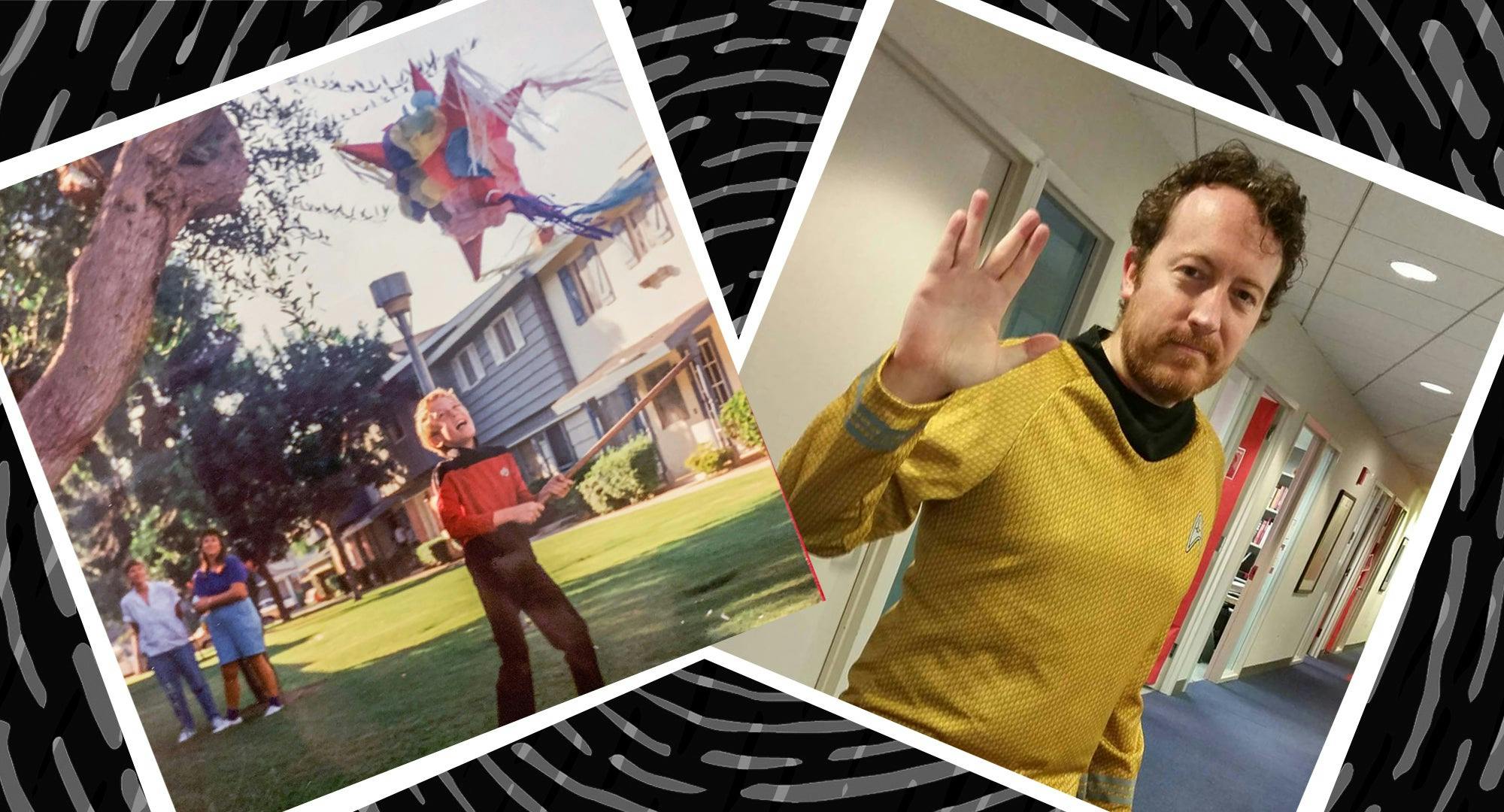
StarTrek.com
If Spock opted to describe Star Trek fan Asher Huey’s personal and professional journey in a single word, the stoic science officer would surely say, “Fascinating.”
As a union activist and an advocate for LGBTQ rights, Huey’s work as the digital director for the American Federation of Teachers (AFT) includes managing the organization’s online program, participating in federal legislative campaigns, and organizing strikes and walkouts, and regularly finds him drawing inspiration from Trek’s egalitarian ideals and progressive economic policies. In childhood, Huey also valued the franchise as a beacon for inclusion, an impression that he continues to associate with his quest to bring the members of the LGBTQ community the equality that they rightfully deserve.
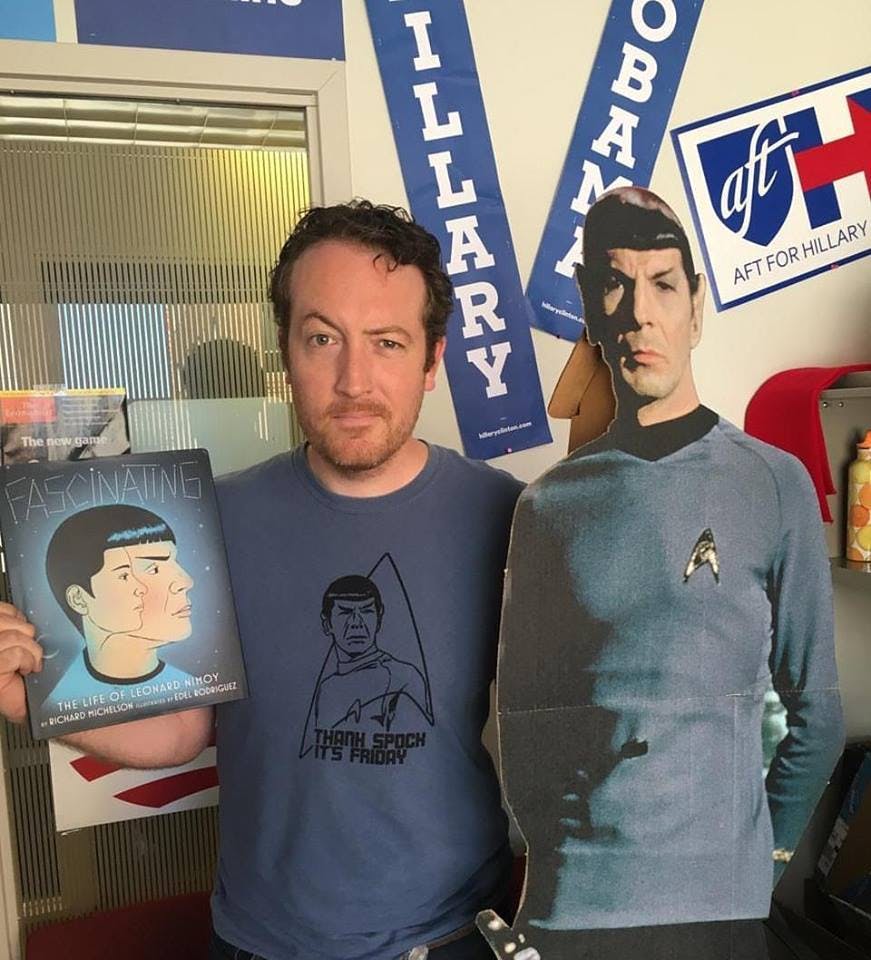
Asher Huey
Huey’s devotion to Star Trek began when he glimpsed an episode that his uncle was watching. After his parents divorced, Huey’s mother wanted to keep her three children active and limited the television programming they consumed each week. At age six, Huey received permission to select a single show for the family to view and attempted to describe the one from his uncle’s television set. “I remember telling her that the episode had a white guy, a gold girl, and volcanoes,” says Huey. “I’m sure she asked me more questions, because she eventually realized I was referring to Star Trek. Now, of course, I know that episode was “Pen Pals” from the second season of The Next Generation.”
Huey’s chance encounter with Trek ultimately led to his lifelong fandom and created a bonding experience that he shared with his siblings. “My mom found out when The Next Generation was on and let us watch it,” Huey explains, smiling when we spoke. “I picked the show for our family, and we watched it together every week until the end of Star Trek: Voyager. My sister and brother were less than thrilled to begin with, but they grew to really love it.”Trek’s impact on Huey ran deep, but the activist did not truly grasp how much the franchise influenced his worldview until after he began his career in politics. “Star Trek grounded me in progressive values and allowed me to see that the world could be a better place,” says Huey. “I didn’t know this for a long time, but I grew up with a utopian future that didn’t just seem aspirational, but for a child, possible.” Huey believes that a crucial lesson he digested actually stemmed from The Next Generation’s creative staff and the idea of the Prime Directive. “They really examined what the idea of not judging and not interfering with other cultures means, moving away from an imperialist idea that we will export our values, but instead embrace differences and learn from others.”
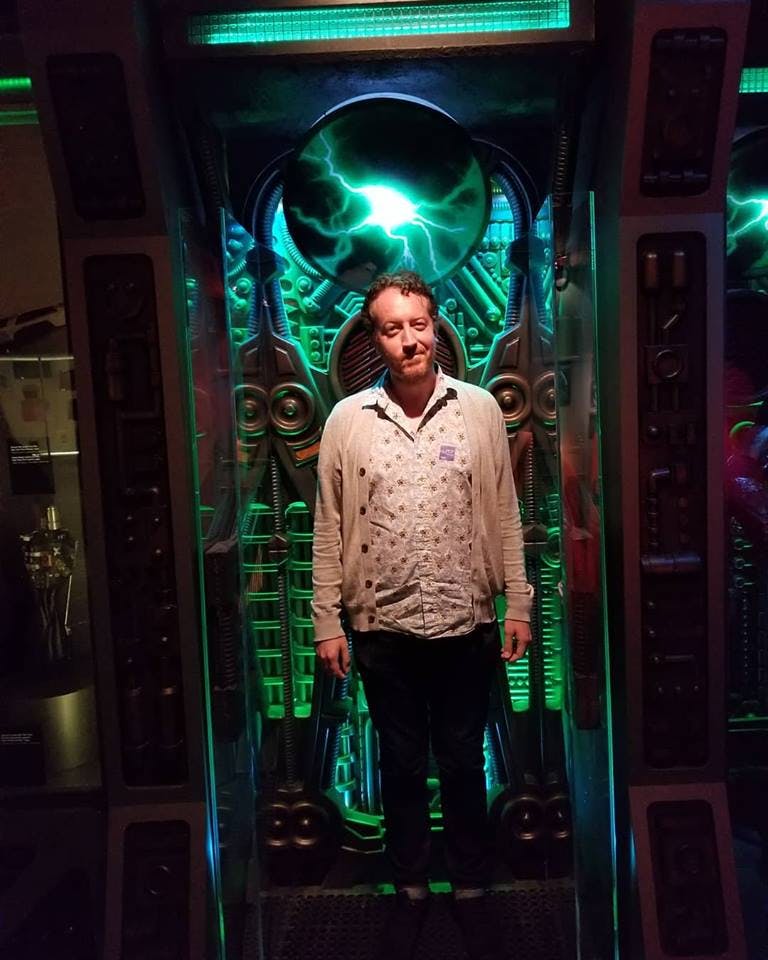
Asher Huey
Star Trek reflected Huey’s interest in government by confronting various political and social issues. “Star Trek VI: The Undiscovered Country is an incredible examination of the end of the cold war,” notes Huey. “Deep Space Nine’s “Past Tense” two-parter looked at both racism and economic issues in a candid fashion. The Next Generation’s “The Outcast” dealt with sexuality and gender fairly directly for the ‘90s.” In addition to appreciating the broad societal trends that Trek tackled, Huey related to specific characters who explored their own humanity. “Spock, Data, Odo, Seven of Nine, and The Doctor all had their own journeys to discover what it is to be human,” explains Huey. “Through them and other complex characters you learn compassion and empathy.”
Data and Odo acted as two key role models for Huey, who grew up facing resentment and bigotry due to his sexual identity. Huey perceived Data’s friendship with Geordi La Forge as an important benchmark, because the two officers connected on a level that transcended their biological distinctions. The pairing even taught Huey that he could be embraced for his uniqueness. Huey felt linked to Odo’s plight, as well. “The writers really dove into how being on the outside can isolate you. Odo’s secret, seemingly unrequited love for Kira, which he himself doesn’t know how to accept or process at the beginning, was so familiar to me,” says Huey. “This left me with empathy for others and a way to emotionally process my own realization that I too am different.”
Huey considers the Trill and their symbionts to be groundbreaking elements that defined Trek’s enlightened approach to gender and sexuality. “I was different. A gay kid in a straight world,” recalls Huey. “But Star Trek, while mostly lacking queer representation in the ‘90s, did have characters whose struggle to fit in, whose search for humanity, I related to.” Much has changed since that time, as evidenced by the Star Trek: Discovery characters Paul Stamets, Hugh Culber, and Jett Reno. “It's amazing to see the shift in LGBTQ acceptance and representation. Finally seeing a gay couple on Star Trek has been wonderfully affirming,” says Huey. “It's nice that, because it's set in the future, the Stamets and Culber storyline isn't rooted in fear or framed in potential homophobia. Their relationship is accepted as normal as any other.” Huey recognizes that this would not be possible without the activists who came before him. “In the fifty years since the Stonewall Riots, we've come so far. We now get to be a central part of the story.”
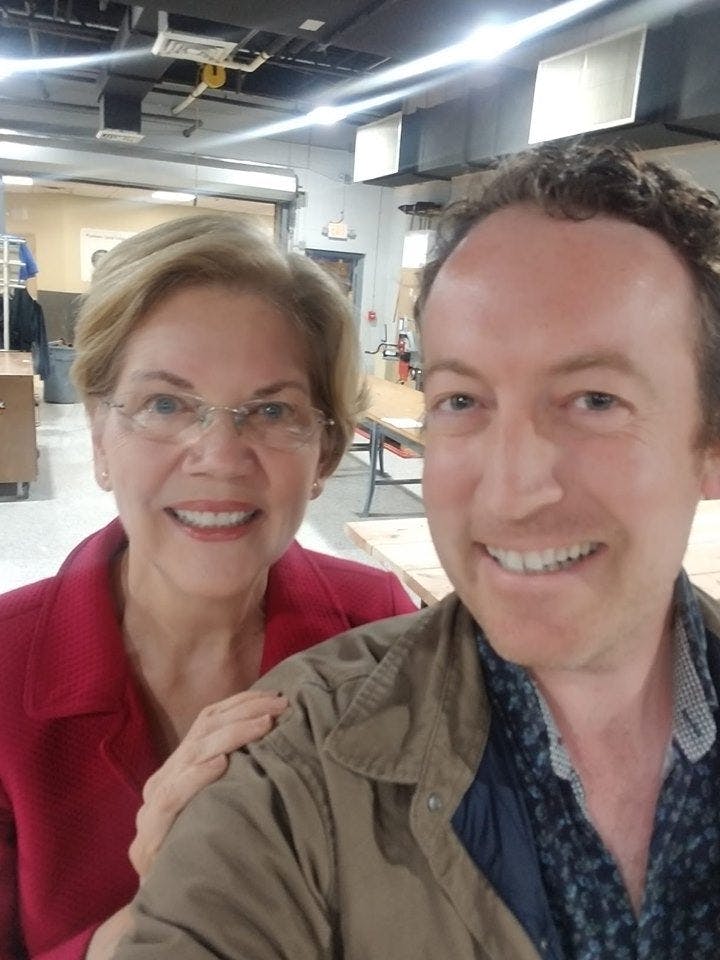
Asher Huey
Prior to spending the last seven years at the AFT, Huey was a digital consultant who worked on numerous electoral and advocacy campaigns. The franchise’s effect on Huey’s career path finally became apparent to him as an adult. “Star Trek gave me a better world and required me to look for humanity in a person, whether it’s an emotionless Vulcan, a frustrated Tamarian, a scared Tosk, or a lonely shapeshifter. Together these formed the basis for my worldview that ultimately led me to activism.”
Huey ranks showing concern for others as the Trek value most vital to his work. “When I look at a policy, I ask what the human cost is,” says Huey. “Let’s consider current events. We’re literally keeping children in cages at the border. These are children who don’t look like me, who come from a different place, speak a different language, and who have very little shared experience with me. But I look for their humanity. And through the AFT, I have been able to participate in and work on efforts to help these asylum seekers.”
A significant amount of Huey’s time as a unionist centers on economics. Huey points to two Trek moments related to the issue that resonated with him as a child. “The first is from Star Trek: First Contact, which is probably still my favorite movie of all time,” says Huey. “When Lily asked Captain Picard how much it cost to build the Enterprise, Picard explained that the economics of the future did not focus on the pursuit of wealth. Instead, humanity worked to better itself.” The second scene that stuck with Huey occurred in the episode “The Neutral Zone,” where Picard makes the case to Ralph Offenhouse that humanity had grown out of its desire for possessions.
“I also remember watching Deep Space Nine as a kid and contemplating the economics of the Federation,” details Huey. “Yes, you needed money in Quark’s bar, but Sisko’s father ran a restaurant on Earth because that was his passion. There seemed to be space for people to have the freedom to do and focus on what they loved.” Huey has carried this knowledge forward as he fights for fair wages and basic healthcare. “When I rewatched these episodes and films in my late twenties, it crystalized just how transformative Star Trek was for me.”
Huey’s list of influential episodes covers an array of important topics. Voyager’s “Workforce” and Deep Space Nine’s “Bar Association” discussed labor conditions and labor’s role as a resource, while The Original Series’s “Let That Be Your Last Battlefield” addressed the nature of identity. “When I was in high school, I went as a Cheron native for Halloween,” says Huey. “I recall that episode’s overt statement about racism, especially in the context of when “Let That Be Your Last Battlefield” originally aired [in 1969].” Huey sees Dr. Crusher’s dilemma in The Next Generation’s “Remember Me” as a metaphor for believing women, an issue that our society continues to struggle to accept. “Even the story arcs involving the Maquis and the Bajoran resistance were incredibly progressive, because they created empathy for occupied people,” reminisces Huey.
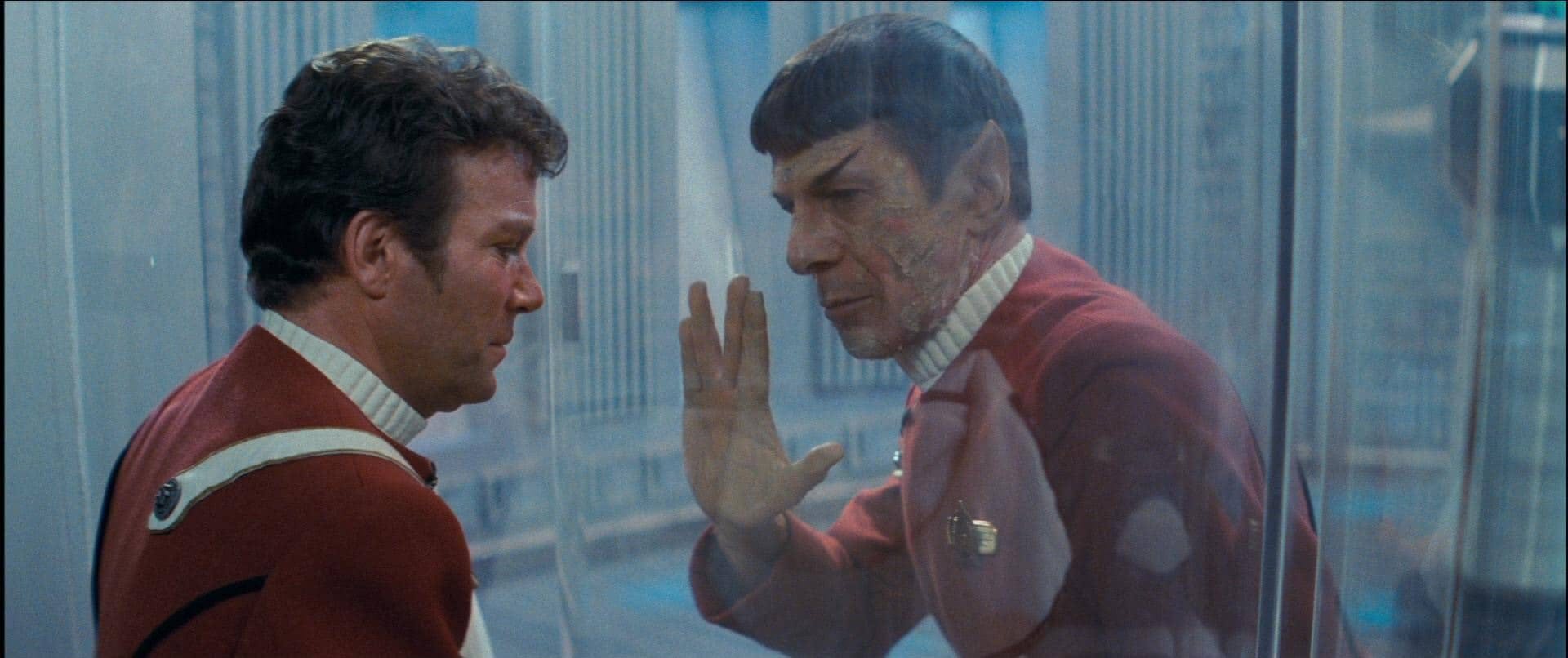
StarTrek.com
Star Trek imparted a great deal of wisdom upon Huey, including displaying empathy for others and showing pride in ourselves regardless of race, gender, or sexual orientation. However, Huey recognized a downside to his activism in Spock’s death at the end of Star Trek II: The Wrath of Khan. “Hearing Spock’s comment that the needs of the many outweigh the needs of the few hit too close to home. This do the most good, personal sacrifice approach has been with me since childhood,” says Huey. “It [makes]you ask the question: What is best for society? For example, we could fix so much by implementing higher top marginal tax rates, eliminating the recent tax cuts for the wealthiest Americans, or both. We’re living in an America where teachers have to work second jobs or give blood to make ends meet. Students are hungry in our classrooms, and we’re imposing harmful work requirements on Medicaid programs which will cause hundreds of thousands of people to lose their healthcare.”
The gut-wrenching scene with Kirk and Spock dredges up the toll that working hard to benefit others can take on someone, whether they are a Starfleet officer or a unionist. “[Being] an activist— it’s unhealthy at times. We’re in it for the cause, which leads to ignoring our own needs and getting lost in the activism,” admits Huey. “I’m in my mid-thirties and single, in large part, because I’m a workaholic. Yes, I’d like to go on that date, but there’s a walkout in West Virginia. Sorry, but there's a chance to protect DREAMers or stop families from being separated, so I’m going to go help them rather than go out and meet single guys. I don’t sleep as much as I should or create space for myself, because of the needs of the many.”
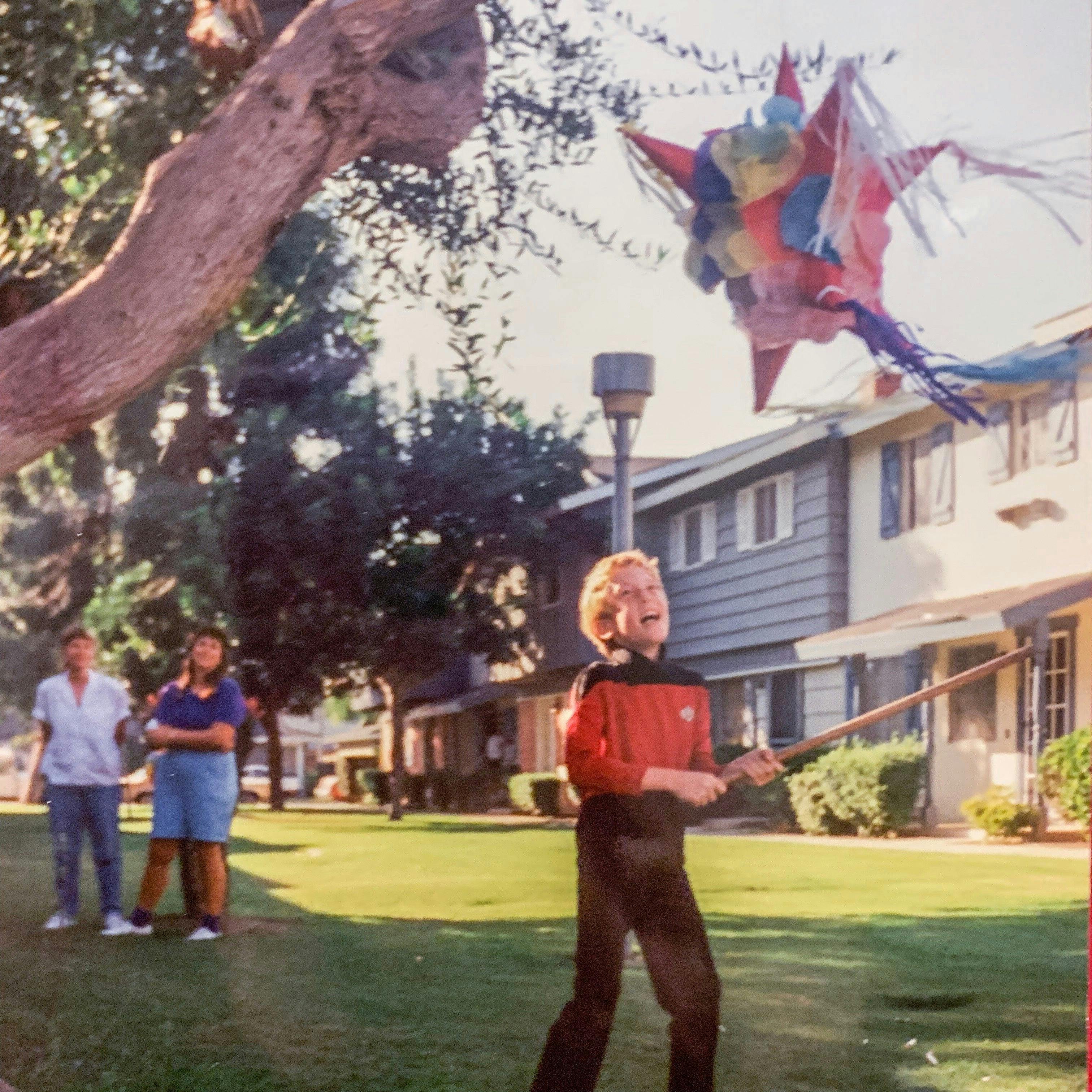
StarTrek.com
Huey’s tireless dedication to making a difference for union workers and the LGBTQ community echoes the ideals the activist inherited from his favorite Star Trek episodes. Huey harnesses the utopian goals of fairness, equality, and economic freedom in his vigilant endeavor to enhance the lives of others. Huey’s admirable efforts shine as a testament to Gene Roddenberry’s vision and represent a reminder that we still have much growing and maturing to do as a society.
Jay Stobie (he/him) is a freelance science fiction writer who contributes articles to the official Star Trek website and Star Trek Magazine. He can be found on Twitter at @CaptStobie.

